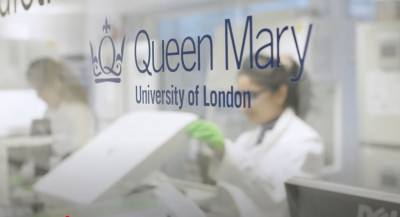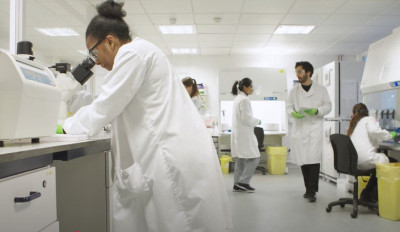News
One of Europe's largest organ-on-a-chip facilities opens at Queen Mary University of London
24 February 2025


Queen Mary University of London has officially opened one of Europe’s largest and most advanced organ-on-a-chip facilities, a groundbreaking development in the mission to replace animal testing in scientific research. The facility is supported by major funding from the National Centre for the Replacement, Refinement and Reduction of Animals in Research (NC3Rs).
The launch event, attended by industry leaders and key stakeholders, also marked the beginning of Queen Mary’s new £7 million EPSRC Centre for Doctoral Training (CDT) in Next Generation Organ-on-a-Chip Technology. Funded by the Engineering and Physical Sciences Research Council (EPSRC), the Centre will train 60 PhD students over the next eight years, equipping them with the skills to become future leaders in the development and use of this cutting-edge technology.
Organ-on-a-chip systems consist of living cells within miniature bioengineered plastic ‘chips,’ mimicking key features of human organs within a laboratory setting. These devices enable researchers to better study diseases and accurately test drugs, reducing reliance on animal testing and accelerating delivery of new therapeutics. The technology is a cornerstone of worldwide efforts to reduce the use of animals in scientific research.
Professor Hazel Screen, Principal Investigator on both grants, and Co-Director of the Queen Mary Centre for Predictive In-Vitro Models highlighted the significance of this milestone:
“Collectively, this new facility and the CDT offer incredibly exciting opportunities for us to bring the organ-chip community together. We can drive innovative organ-chip research, train a new generation of multidisciplinary research leaders in the field, and bring this exciting technology a step closer to translatory impact.”
Lord Patrick Vallance, Minister of State for Science, Research and Innovation said:
“Phasing out animal testing where possible is a clear goal of this government and innovative methods like organ-on-a-chip technology are essential to delivering that ambition. Queen Mary University’s new facility and the new Centre for Doctoral Training, supported by Government funding, presents a significant opportunity to place the UK at the forefront of developing these alternatives further, allowing vital research and development to continue while supporting animal welfare, protecting the public and growing our economy.”
The new facility cements Queen Mary’s position as a global leader in organ-on-a-chip research, accelerating the development and adoption of these transformative technologies.
| Contact: | Hazel Screen |
| Email: | h.screen@qmul.ac.uk |
| People: | Hazel SCREEN Martin KNIGHT |




